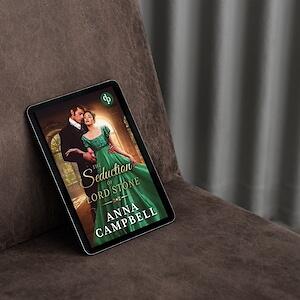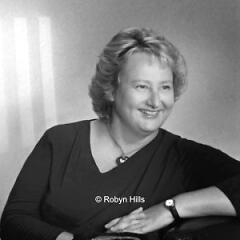What’s your book The Seduction of Lord Stone about?
The Seduction of Lord Stone is about what happens when falling in love threatens everything you’ve ever wanted. Caroline, Lady Beaumont, was married off far too young to a man who wasn’t a villain, but just not the right man for her. Caroline wanted to party; her husband loved being a farmer in the depths of Lincolnshire and had no interest in going anywhere else. After ten tedious years of marriage, Freddie Beaumont dies, leaving her a rich widow. Now that her year of mourning is over, she’s champing at the bit to make up for everything she’s missed. She’s moved to London, she’s setting up as a society hostess, and she intends to take a lover. The only problem with this glorious plan is that her best friend’s brother, Silas, Lord Stone, has fallen in love with her and wants to marry her. Even worse, she just might be more than a little in love with the reformed rake. That doesn’t fit with her plans at all. In Caroline’s mind, marriage equals captivity and lost opportunity. For eleven frustrating, boring, interminable years, she’s dreamed of freedom. How can she give that dream up, when it’s all that’s kept her going?
Caroline, Lady Beaumont, is such a vibrant and daring character. What inspired you to create her, and how did her story come to life?
Thanks for saying those things about Caroline. That’s how she always seemed to me – someone who’s ready to seize life by the scruff of the neck and give it a good shake. She’s one of those characters who sprang fully formed into my mind. Sometimes I’m lucky and that’s the case. I felt so intensely her longing for action and adventure and excitement and how stultifying her life has been until now. Whenever she came onto the page, I couldn’t help singing “Girls Just Wanna Have Fun”! Cyndi Lauper could have been writing about Caroline!
Silas Nash, Viscount Stone, is a notorious rake who finds himself in unfamiliar territory – falling in love. How did you approach writing his character arc, and what do you think readers will find most compelling about his journey?
Readers adore a reformed rake who falls hard for the right woman and isn’t quite sure how to win her. In The Seduction of Lord Stone, love throws this rakish alpha completely of balance. All the old tricks won’t work anymore, now that he’s interested in forever instead of a temporary liaison. At the start of the story, Silas is a lot further along in accepting that he’s met his fate in Caroline than she is. Throughout her year of mourning, he’s established a close friendship with a view to courting her. Now she’s out of mourning, he’s ready to make some serious moves, but unfortunately, Caroline keeps him in the friend zone. She even asks his help to attract his friend Lord West’s attention. Poor Silas, I really felt his frustration as he just can’t seem to get through to Caroline that he would be perfect for her!
The theme of 'passion without promises' is central to Caroline's philosophy. How do you think this resonates with modern readers, and what message do you hope they take away from her story?
Because Caroline is a wealthy widow, she has more leeway to follow her inclinations than an innocent young debutante. I hope her intention to seek self-fulfilment, personally and sexually, should strike a modern reader as realistic, even admirable. But Caroline also discovers that dreams can cost more than she wants to pay. Is it worth sacrificing the love of a lifetime for the chance to follow her own path? I wanted to make Caroline’s dilemma a realistic and difficult one – generally in romances, the love of a lifetime choice outweighs any other, but I wanted Caroline’s yearning for freedom to be just as powerful. After ten years on the muddy farm, I’m not sure I’d want to turn around and get married straightaway without having a bit of fun first! I think one of the messages I wanted people to take away from the book is that you can find a way to compromise and still remain true to yourself.
What inspired you to become a writer, and how has your journey as an author evolved over the years?
I decided very early that I wanted to be a writer – my mother always kept a piece I wrote in grade 2 proclaiming that I was going to be the next Enid Blyton. I started my first novel, a rip-snorter about horse-napping, in grade 3. I finished my first full-length novel when I was 17, a historical romance set in the Hundred Years War. In between the Enid Blyton obsession and that story, I’d discovered how much I loved historical romance via Georgette Heyer, Barbara Cartland, and Kathleen Woodiwiss. I fiddled around with writing with increasing seriousness for a long time, until I sold Claiming the Courtesan at auction to HarperCollins in New York in 2006. By that stage, I’d given up any idea of ever being published, so it was a dream come true when I could give up the day job and become a full-time writer. Since then I’ve written 49 books (I’ve just finished my 50th) and I’ve never ceased to be grateful for the chance to tell stories for a living.


